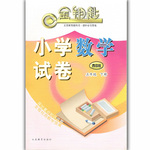
ЗжЮі БОЮФНВЪіУЗУЗКмАЎЖСЪщЃЌОГЃШЅЭМЪщЙнНшЪщЃЎЕЋгЩгкВЛЬЋАЎЛЄЪщМЎОГЃФжГіВЛЩйаІЛАЃЎ
НтД№ Meimei likes reading booksЃЎShe often goes and borrows books from the school libraryЃЎThough she likes readingЃЌbut she doesn't take care of her booksЃЎShe threw them everywhereЃЌon the tableЃЌon the groundЃЌand even under her bedЃЎHer roommates often remind herЁФthisЃЎBut she turns a deaf ear to themЃЎThe bad habit didn't bring him great trouble until yesterdayЃЎIt was the deadline for two bookЃЎShe looked everywhere in the roomЃЎTwenty minutes past but she still failed to find themЃЎMeimei cried helplessЃЎIt was four thirty and Meimei had to go to the libraryЃЌfor it closed at fiveЃЎShe told a story to the librarian and asked for an extra day in tearsЃЎLooked at her in surpriseЃЌthe librarian saidЃЌ"How a careless girl!You returned them yesterdayЃЎDon't you rememberЃП"
ЯъНтЃК
1ЃЎШЅЕєbutЃЎСЌДЪгУЗЈДэЮѓЃЎдкгЂгяжаЃЌСЌДЪthoughВЛПЩдйгыbutСЌгУЃЎ
2ЃЎthrewИФЮЊthrowsЃЎ ЪБЬЌгУЗЈДэЮѓЃЎИљОнЮФеТЪБЬЌПЩжЊЃЌгУвЛАуЯждкЪБЃЌзЂвтгУЕкШ§ШЫГЦЕЅЪ§ЃЎ
3ЃЎдкherКѓМгofЃЎЖЏДЪгУЗЈДэЮѓЃЎетРяПМВщЖЬгяremind sbЃЎof sthЃЎЬсабФГШЫФГЪТЃЎ
4ЃЎhimИФЮЊherЃЎДњДЪгУЗЈДэЮѓЃЎИљОнОфжаЕФжїШЫЙЋЮЊХЎадПЩжЊЃЌгУherЃЎ
5ЃЎbookИФЮЊbooksЃЎУћДЪгУЗЈДэЮѓЃЎУћДЪbookЮЊПЩЪ§УћДЪЃЌЙЪашвЊгУИДЪ§аЮЪНЃЎ
6ЃЎpastИФЮЊpassedЃЎДЪадгУЗЈДэЮѓЃЎетРягІЕБгУЖЏДЪpassЃЌЦфЙ§ШЅЪНЮЊpassedЃЎ
7ЃЎhelpleshelplesslyЃЎДЪадгУЗЈДэЮѓЃЎетРяаоЪЮЖЏДЪЃЌЙЪгІЕБгУИБДЪаоЪЮЃЎ
8ЃЎaИФЮЊtheЃЎЙкДЪгУЗЈДэЮѓЃЎетРяЕФstoryЮЊЬижИЧАУцЕФЙЪЪТЃЌЙЪгУЖЈЙкДЪtheЃЎ
9ЃЎlookedИФЮЊlookingЃЎЗЧЮНгяЖЏДЪгУЗЈДэЮѓЃЎОфжаЕФТпМжїгяЮЊthe librarianЃЌгыlookжЎМфЮЊжїЖЏЙиЯЕЃЌЙЪгУЯждкЗжДЪзїзДгяЃЎ
10ЃЎhowИФЮЊwhatЃЎИБДЪгУЗЈДэЮѓЃЎИаЬООфЮЊwhat+a/an+adjЃЎ+nЛђепhow+adjЃЎ+a/an+nЃЎ
ЕуЦР ЖЬЮФИФДэжївЊПМВьбЇЩњНЋЫљбЇЕФжЊЪЖгІдЫдкОпЬхЕФгяОГжаЃЌвЊзЂвтвЛаЉЙЬЖЈДЪгяОфаЭЕФДюХфЃЌвдМАУћДЪЕЅИДЪ§ЃЌЙкДЪЕШЕШгУЗЈЃЎ


 Н№дПГзЪдОэЯЕСаД№АИ
Н№дПГзЪдОэЯЕСаД№АИ
| ФъМЖ | ИпжаПЮГЬ | ФъМЖ | ГѕжаПЮГЬ |
| ИпвЛ | ИпвЛУтЗбПЮГЬЭЦМіЃЁ | ГѕвЛ | ГѕвЛУтЗбПЮГЬЭЦМіЃЁ |
| ИпЖў | ИпЖўУтЗбПЮГЬЭЦМіЃЁ | ГѕЖў | ГѕЖўУтЗбПЮГЬЭЦМіЃЁ |
| ИпШ§ | ИпШ§УтЗбПЮГЬЭЦМіЃЁ | ГѕШ§ | ГѕШ§УтЗбПЮГЬЭЦМіЃЁ |
ПЦФПЃКИпжагЂгя РДдДЃК ЬтаЭЃКбЁдёЬт
| AЃЎ | as | BЃЎ | such | CЃЎ | much | DЃЎ | enough |
ВщПДД№АИКЭНтЮі>>
ПЦФПЃКИпжагЂгя РДдДЃК ЬтаЭЃКЖЬЮФИФДэ
ВщПДД№АИКЭНтЮі>>
ПЦФПЃКИпжагЂгя РДдДЃК ЬтаЭЃКдФЖСРэНт
ВщПДД№АИКЭНтЮі>>
ПЦФПЃКИпжагЂгя РДдДЃК ЬтаЭЃКЖЬЮФИФДэ
ВщПДД№АИКЭНтЮі>>
ПЦФПЃКИпжагЂгя РДдДЃК ЬтаЭЃКбЁдёЬт
| AЃЎ | causes | BЃЎ | caused | CЃЎ | have caused | DЃЎ | has caused |
ВщПДД№АИКЭНтЮі>>
ПЦФПЃКИпжагЂгя РДдДЃК ЬтаЭЃКбЁдёЬт
| AЃЎ | attended | BЃЎ | had attended | CЃЎ | am attending | DЃЎ | have attended |
ВщПДД№АИКЭНтЮі>>
ПЦФПЃКИпжагЂгя РДдДЃК ЬтаЭЃКдФЖСРэНт
ВщПДД№АИКЭНтЮі>>
ПЦФПЃКИпжагЂгя РДдДЃК ЬтаЭЃКбЁдёЬт
| AЃЎ | has to | BЃЎ | will | CЃЎ | must | DЃЎ | need |
ВщПДД№АИКЭНтЮі>>
АйЖШжТаХ - СЗЯАВсСаБэ - ЪдЬтСаБэ
КўББЪЁЛЅСЊЭјЮЅЗЈКЭВЛСМаХЯЂОйБЈЦНЬЈ | ЭјЩЯгаКІаХЯЂОйБЈзЈЧј | ЕчаХеЉЦОйБЈзЈЧј | ЩцРњЪЗащЮожївхгаКІаХЯЂОйБЈзЈЧј | ЩцЦѓЧжШЈОйБЈзЈЧј
ЮЅЗЈКЭВЛСМаХЯЂОйБЈЕчЛАЃК027-86699610 ОйБЈгЪЯфЃК58377363@163.com